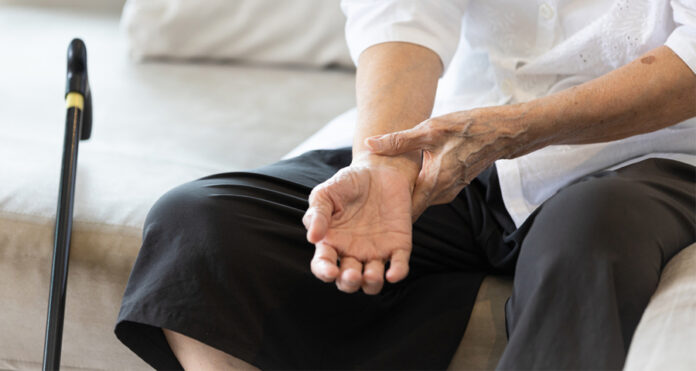What is Parkinson’s disease?
Parkinson’s disease is a central nervous disorder that affects mobility. Parkinson’s disease is a neurological disorder that causes collapsing, soreness, and difficulty walking, balancing, and coordinating.
Parkinson’s disease symptoms typically appear gradually and worsen over time. People may struggle to move and speak as the condition worsens. They may also experience mental and behavioral changes, sleep issues, depression, poor memory, and tiredness.
Age is a clear risk factor for Parkinson’s. Parkinson’s disease is caused by a combination of genes, environment, and lifestyle. The root cause of Parkinson’s is the loss of nerve cells in the substantia nigra, a region of the brain stimulating the production of a chemical called dopamine.
Every year on April 11th, World Parkinson’s Awareness Day is observed. This day is celebrated in order to raise awareness and understanding of Parkinson’s. Dr. J Parkinson’s birthday is noted as World Parkinson’s Day. On this day, efforts are made to raise public awareness of this terrible disease and all of the good work done by the world organizations dedicated to eradicating it.
Challenges with Parkinson’s disease
- Problems with thinking.
Our loved ones with Parkinson’s disease may develop cognitive issues such as dementia and difficulty thinking. As their cognitive ability deteriorates, the elderly may find it difficult to comprehend, recall, or act appropriately. Some types of deficit may not be treatable with medications.
- Distress and emotional stress
Parkinson’s disease individuals may experience mood swings such as panic attacks, anxiety, and a loss of motivation. Mental health counseling and medications may be beneficial in dealing with these difficulties.
- Problems with swallowing
As the patient’s health deteriorates, he or she may have difficulty swallowing. Due to slow swallowing, saliva may accumulate in the mouth, resulting in drooling.
- Chewing and eating issues
Because Parkinson’s disease affects the oral muscles, patients in the later stages of the disease may have difficulty chewing and eating. This results in choking and a lack of nutrition.
- Sleep disorders and sleep disturbances
People with Parkinson’s disease frequently experience sleep issues, such as waking up with frequent episodes, waking up early, or staying asleep throughout the day. Rapid eye movement sleep behaviour ailment, which includes acting out your dreams, can also occur. Medications may be prescribed for your sleep issues.
- Bladder issues
Parkinson’s disease can cause bladder problems, such as the inability to control urine or trouble passing urine.
- Constipation
Constipation is common in people with Parkinson’s disease, owing to a slower digestive system.
Parkinson’s disease & homecare treatment:
Home healthcare provides a wide range of health treatments right at your door. Parkinson’s disease impairs seniors’ movement and brain abilities. Homecare for Parkinson elders reduces the difficulty of going to the hospital for quality healthcare. Athulya Home Healthcare provides the following home care facilities that are extremely beneficial to seniors with Parkinson’s disease:
- Skilled nursing care
Skilled nursing care for Parkinson’s elders aids in receiving full and comprehensive medical treatment in the comfort of your own home. Nursing procedures, pain management, adhering to the nutrition plan, and so on are all examples of skilled nursing care. Athulya’s experienced and skilled nursing care specialists assist the elders in managing their requirements as prescribed by your medical practitioner.
- Caretakers
Providing care for someone with Parkinson’s disease can be both emotionally and physically challenging. The well-trained licensed caretakers ensure the patients’ physical and mental well-being by assisting them with everyday chores, spending a lot of time with them, walking assistance, and so much more.
- Physiotherapy at home
Home-based physiotherapy simplifies Parkinson’s disease treatment for older adults. Physiotherapists consult patients at home and provide individualized care, therapeutic interventions, and consultation, thereby preventing mobility health problems from worsening. Athulya provides a wide variety of rehabilitation care at home, allowing the elderly to regain a grip on their movement, motion range, and get their lives back on track.
- Geriatric counseling
Because Parkinson’s disease affects dopamine balance in the bloodstream, the elderly are more prone to anxiety and feelings of hopelessness. Medical counseling for elders assists seniors in maintaining their psychological health and improving their overall health. Geriatric counselors carefully analyze their observations and construct the best therapy action plan or practices.
Athulya Home Healthcare provides patient-centered, high-quality, and all-inclusive medical care in the comfort of the patient’s own home. Athulya home care assists seniors in healing where they belong. Athulya strives to achieve better and healthier aging through personalized care and a friendly atmosphere.













